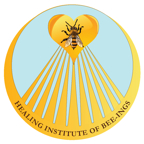BEE ALIVE COFFEE®
A HEALTHY, VERY HEALTHY PATENT PENDING COFFEE THAT WILL GIVE YOU ALITTLE BUZZ IN THE MORNING!A SUPER ANTI OXIDANT NUTRACEUTICAL WITH ORGANIC, FAIR TRADE GOURMET HAND ROASTED COFFEE WITH BEE PROPOLIS
YOU WILL FEEL THE DIFFERENCE AFTER 1 CUP!![]()
![]()
![]()
patent pending
CLICK HERE TO ORDER
What is Bee Propolis?
Other name: Propolis
Propolis is resinous substance bees collect from tree buds. Bee propolis contains antioxidants called flavonoids, which are thought to be the active ingredients.
Propolis is available many forms, including tablet, capsule, ointment, powder, extract, cream, lotion and other cosmetics. It's available as a nutritional supplement in health food stores and online. It is also found in small quantities in honey.
Propolis is a mixture of resin, essential oils and waxes mixed with bee glue. It it contains amino acid, minerals, ethanol, vitamin A, B complex, E, pollen and highly active ingredients known as flavonoids or bioflavonoids.
Benefits
Propolis has been used since ancient times in folk medicine. Laboratory studies also show that propolis has anti-tumor effects. An ointment made of propolis is able to heal genital herpetic lesions (see below). In addition, bee propolis can enhance the immune system and the flavonoids in propolis act as antioxidants. Propolis may even play a role in stomach ulcer prevention. However, since human studies are in short supply, we don't know the full benefit or side effect profile of propolis ingestion as a supplement for prolonged periods.
Antibacterial
Chemical composition and antibacterial activity of propolis collected by three different races of honeybees in the same region.
J Ethnopharmacol. 2005.
The chemical analysis and antibacterial activity of three types of propolis collected three different races of Apis mellifera bee in the same apiary were investigated. Propolis samples were investigated by GC/MS, 48 compounds were identified 32 being new for propolis. The compounds identified indicated that the main plant sources of propolis were Populus alba, Populus tremuloides and Salix alba. Ethanolic extracts of propolis samples showed high antibacterial activity against Gram-positive cocci (Staphylococcus aureus), but had a weak activity against Gram-negative bacteria (Escherichia coli and Pseudomonas aeruginosa) and yeast (Candida albicans). Propolis sample collected by Apis mellifera caucasica showed a higher antibacterial activity than collected by Apis mellifera anatolica and Apis mellifera carnica.
Antifungal
Inhibitory effect of bee pollen and propolis extracts.
Nahrung. 2004.
Bee pollen and propolis were collected from Apis mellifera colonies in five regions of Turkey. The antifungal properties of methanol extracts of pollen and propolis (2% and 5% concentrations) were determined on Alternaria alternata and Fusarium oxysporium f. sp. melonis. The least active concentration towards the tested fungi was 2% concentration of both extracts. The inhibitory effect of all bee propolis extracts on growth of F. oxysporium and A. alternata were generally higher when compared with bee pollen extracts. The growth of A. alternata and F. oxysporium were not affected at both concentrations of pollens. However, F. oxysporium against propolis extracts was more sensitive than A. alternata. None of the bee pollen extracts tested completely inhibited mycelial growth of fungi used in our experiment. Percent inhibition of both pollen concentrations against A. alternata and F. oxysporium was lower than 50%. It is suggested that high concentrations of propolis extract could be used as an antifungal agent against tested fungi.
Antioxidant
Bee propolis contains antioxidant compounds, flavonoids such as chrysin, and research has suggested it has anti-tumor properties.


